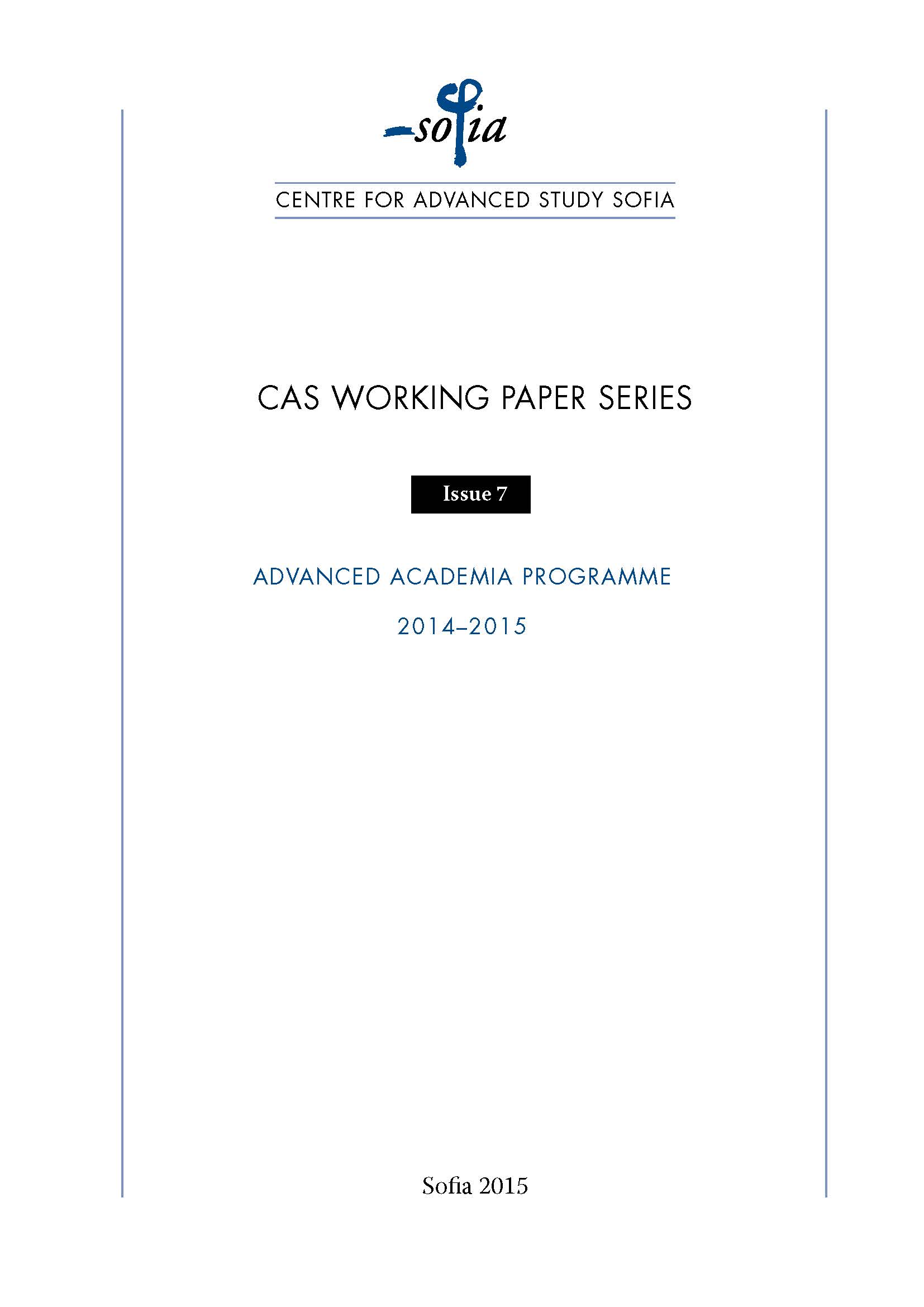

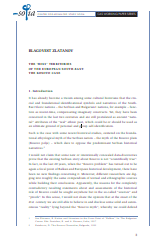
In his oral history cum novel, The Emigrants, W.G. Sebald quotes a German Jew who fl ed from his turbulent town to New York in the thirties: “I often come out here, said Uncle Kasimir, it makes me feel that I am a long way away, though I never quite know from where” (Sebald, 146). The lack of a geographical referent for the residual sense of remoteness expressed by this particular emigrant is akin to what Said has famously called the “generalized condition of homelessness.” It contrasts sharply with the resilient and politicized attachment to a national homeland sustained by many contemporary diasporic groups. In fact, one of the splits in the proliferating literature on the transnational movement of people is precisely around the signifi cance of territorial attachments. One strand emphasizes the waning pull of a national homeland and the virtues of “fl exible citizenship,” (Ong 1999), where displacement, even if not initially voluntary, is ultimately appropriated by the migrant as a creative opportunity. The second strand posits instead the signifi cance of continuing political and emotional attachments to a national homeland as giving purpose and meaning to the diasporic existence of the displaced. Both approaches have been infl uential in undermining the putative isomorphism of culture, place and people (Gupta and Ferguson 1997). But while the emphasis on cosmopolitan (Morley and Robbins 1995), hybrid (Bhabha 1994), or creolized (Gilroy 1993) identities of the fi rst strand challenges the primacy of ethno-national belonging, the second trend argues that displacement and deterritorialization do not necessarily result in more fl exible identities, but may result instead in reinforced ethnic attachments and nationalisms (Anderson 1991 [1983], Levy 2000, Werbner 2000).8...]
More...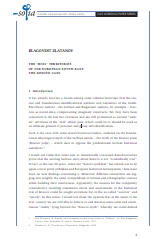
This paper is the result of a research study undertaken within the frame of the NEXUS international team project on “How To Think About the Balkans: Culture, Region, Identities”, one of the research branches of the Blue Bird policy project. The project was hosted by the Centre for Advanced Study in Sofi a and supported by the Volkswagen Foundation, the European Cultural Foundation and the Netherlands Institute for Advanced Study. The interpretations included here draw upon interviews and data surveys carried out by the author in association with Irina Curie, Anca Covrig, Lorand Cziprian, Camil Postelnicu, Cristina Ra{ and Stefania Toma, sociologists and research assistants from Babe§-Bolyai University, Cluj-Napoca, members of the scientifi c team of the Research Center for Interethnic Relations (CCRIT). For this presentation the author has used the results of the sociological survey of (CCRIT) carried out between June 25-July 5, 2000 in the counties of Szeklerland (Szekelyfold in Hungarian, Secuime in Romanian), as part of a project entitled “The Deconstruction and Reconstruction of an Image: the Population of Covasna and Harghita Counties”, fi nanced jointly by the Ethnocultural Diversity Resource Center and the Open Society Foundation”. Data refer also to the Ethnobarometer. Interethnic Relations in Romania, May-June 2000, research fi nanced by the United States Agency for International Development. A shorter, earlier version of this study focused on identity perceptions and interethnic relations in Szekerland. Elements for a “deconstruction” and a “reconstruction”*, in Lucian Nastatsa, Levente Salat (ed.), Interethnic Relations in Post-Communist Romania, Cluj-Napoca, Ethnocultural Diversity Resource Center, 2000.
More...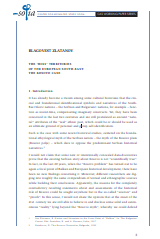
Admittedly, collective identities are specific and complicated intellectual constructions. Apart from the obvious contemporary scientific controversies between the concepts of “the leading constructionist” Benedict Anderson and the critics of provable collective identities, an attempt will be made at retracing some aspects of collective identities in the Balkans associated with or expressed in relevant economic terms. Pride of place is accorded to the feelings of belonging both as a self-consciousness, self-determination, self-recognition and as mutual/reciprocal perception. The necessary admission of their multiple layers predetermines the acceptance of fl uctuating imaginary maps where frontiers could be optional. Identity as a specifi c sociological term will be used as a determinant toward neighbours, Europe as a whole, the Great Powers and other historical and political constituents in the late 19th and early 20th centuries - a period of significant political and economic changes in the region’s life. Admittedly, all this relates more or less to the process of nation building. The study is focusing on contemporary uses of the Balkans before the Balkan wars, rather than on later political discourses and present-day scientifi c discussions on sense, essence and non-sense of the Balkan(s) as a construct .[...]
More...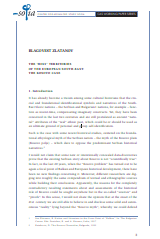
In the eighteenth and the beginning of the nineteenth century, Plovdiv was a complex multicultural space – a sort of ‘Balkans in miniature’. There lived Orthodox and Catholic Christians, Muslims; Bulgarians, Turks, Greeks, Jews, Armenians, Pavlikyans (Bulgarian Catholics), Roma and even merchants from Ragusa (i.e. Dubrovnik). But the Ottoman city was multicultural in a medieval, not a modern sense. It was far from the ideal of modern multiculturalism – far from being a melting pot, a hybrid place for contacts, conflicts, and re-negotiations of boundaries. The fact that communities met face-to-face did not mean they were in a state of democratic cohabitation, with their cultural identities equally represented in public space, public conflicts or creative dialogues. Before the 1820s, every ethnic-cultural and religious community had its own isolated, localized and strictly defined mode of living, and the contacts between these communities, limited to the practical needs of economic exchange, seem to have been well-regulated and hierarchically structured, also in spatial terms. These communities inhabited different neighborhoods, some of them quite closed and endogamous (the Pavlikyans (Bulgarian Catholics), Jews and Armenians). They had distinct secular and religious cultures, dress, emblematic everyday food; they practiced their religions in separate temples, celebrated their own holidays and performed their religious rituals in different holy languages (Turkish, Greek, Ladino, even Italian). Thus, in the early 19th century the city lived in pre-modern coexistence of small religious and cultural communities that perpetuated their own distinct modes of living. The most typical token of this enclosure were the communities’ taboos regarding specific eating, drinking or sexual practices of the other communities, stigmatised as repulsive and unclean.[..]
More...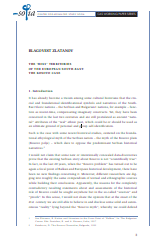
The homeless dogs debate presents an interesting phenomenon. The heated exchanges, the arguments, the examples used often shift the attention away from animals to humans, social groups, models for structuring society.
More...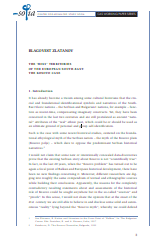
Any survey on publications in the field of political studies would inevitably show that analysis concentrates rather on leaders, elections and crises than on institutions and inter-institutional relations. This is because institutions are perceived as an already existing framework, as something given. Institutions and relations between them change so rarely and/or so slowly that in many cases these changes could be ignored in a short-term analysis. As it came out from my search for secondary literature especially rare are studies on the head-of-state institution. This article tries to demonstrate that such a study can be a helpful tool for the analysis of the establishment of democratic regimes in former communist countries. It can be revealing in terms of understanding authoritarian, paternalist and populist traditions in post-communist societies and their manifestation on the highest level of the political system in the recent decades. The study focuses on the evolution of the head-of-state institution in the Southeast European post-communist states (Albania, Bulgaria, Romania, the successor states of former Yugoslavia), considering other post-communist countries as controlling cases.
More...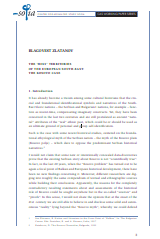
In every society the actors of the institutional culture have their own patterns of discursive and practical behaviour. This approach for analysing the social processes is encouraged by seeking the space of interaction between the role and the identity of social existence. We direct our research towards the functioning of a part of the political elite of the Republic of Macedonia – the Member of Parliament and its opponent – public opinion. So far, in the scholarly research, Parliament has been less interesting as an institution than as a carrier of concentrated political power and authority for regulating social relations. Consequently, the socio-political research, which is concerned with the power of society groups, rarely treats the question of the representatives separately; they are usually analysed as part of the political elite or the elite of power. We shall try and make the necessary distinction and locate some of the specifics of the institution representative, because every social occurrence is connected to the society structure in one way or other.
More...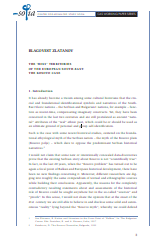
Keywords: Bulgarian elite in the 19th century; Bulgarian state-building; Bulgarian nation-building;
Are Bulgarians barbarians or civilized? Answering this question consumed a considerable part of the intellectual energy of the Bulgarian elite in the 19th century. The dilemma was first put up for discussion at the beginning of the century and ever since then, each new generation has been joining a fresh round of the debate. Interest in the topic has been sufficiently lively to lend legitimacy to the "barbarism-civilization" taxonomy as the main framework within which the nation builds its identity. This research aims to explore the origins of this process. The analysis covers the period from the 1830s to the rise of the independent Bulgarian state in 1878. This is the chronological framework in which the intellectual elite imported and promoted the ideological grammar of modernity and the taxonomies of progress. The objective is to shed light on the history, mechanisms and results of their transfer.
More...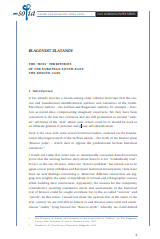
Keywords: Transylvanian Romanian liberalism; national historiographies of 19th-century Transylvania;
The existence of a specific Transylvanian Romanian liberalism, either in the sense of being a fully-fledged movement, or only a more or less clear-cut affective community of individual theorists and politicians, is not taken for granted by the national historiographies of 19th-century Transylvania, either Hungarian or Romanian. The theorists and activists that this paper groups under the heading of Transylvanian Romanian national liberals are most commonly described as members of the national movement in Transylvania, that is, the movement that fought for the emancipation of the Romanian people in Transylvania. It is the argument of this paper, however, that the identity politics devised by the theorists discussed cannot be understood without taking seriously their allegiance to the liberal project of modernity (and modernization) besides their commitment to the national cause. They themselves thought that the two projects, liberal modernization (and its economic corollary, capitalism) and national emancipation were not only reinforcing each other, but could not be conceived of separately. It is this apparently paradoxical concatenation of a progressive and a conservative idiom of political thought, liberalism and nationalism, that the present paper intends to describe through a reconstruction of the Transylvanian Romanian version of liberal identity-building, both political-institutional and cultural.
More...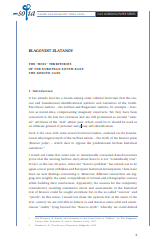
Keywords: Serbian nationalism; Petar Petrović Njegoš; Ivo Andrić
The recent violent outburst of Serbian nationalism has attracted significant interest in the ever-growing field of nationalism studies. In addition, the socalled „cultural turn“ has engaged scholars in the reappraisal of significant aspects of Serbian culture, namely the ones that make it national, such as literature. Two writers – Petar Petrović Njegoš and Ivo Andrić – pillars of the Serbian literary canon, have naturally been debated the most and their works are often referred to either as illustrations of eternal hatred among South Slavs or as providing impetus for the conflicts. Presenting part of this debate to an international audience, Celia Hawkesworth argued that the main problem of the recent reassessment of major literary figures in the former Yugoslavia was the inability of many commentators to separate the political from the artistic, something I believe is both impossible and futile. After all, the characters at stake here were not lonely riders. One was the spiritual and political leader of his (Montenegrin) state in the 19th century, and the other was the highest diplomatic representative of another (Yugoslav) state in the 20th century. Even more instrumental than their political positions was the influence of their literature on political imagining and identity building over the last two centuries. Nonetheless, their influence was not a one-way and one- dimensional phenomenon. Illuminating the interplay between the two is a task for both historians and literary critics.
More...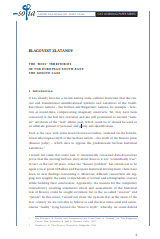
Keywords: Romanian discourse of national peculiarity; Transylvanian Greek Catholic elite; genealogical construction
As in most European cases, some aspects of the Romanian discourse of national peculiarity can be traced back to the humanist genre of "Descripţia" of the land, narrating the origins and political history of the respective people, a genre which in the Danubian Principalities reached its climax in the works of the erudite Moldavian prince-scholar Dimitrie Cantemir (1673–1723).1 The works rooted in the humanist chorographical paradigm of course had a very different discursive function and referential basis than the characterological constructions underpinning the projects of modern nationhood and statebuilding, emerging from the late 18th century onwards, making "national individuality" a key argument of political self-legitimization. Some references to this national individuality can be identified in the political and cultural works of the Transylvanian Greek Catholic elite, which sought to anchor the historical-institutional identity of Transylvanian Romanians in a genealogical construction. They were stressing customs and behavior as the proof of continuity with the Roman colonists of Dacia and accidentally, even the concept of "character" surfaced in some of their writings. Simultaneously, the culturalgeographical literature stemming from the Danubian Principalities (often by travelers or cosmopolitan intellectuals, whose work can be related to more than one national tradition, such as the Greek Daniil Philippide or Dionisie Fotino, both of whom authored geographical descriptions of these lands, or the French Encyclopédiste, J. L. Carra) sought to put these polities on the map of Europe, making references to the customs of the inhabitants. Significantly, the concept of character was already able to become politicized in the late 18th century, as was the case with the reformist discourse of the Moldavian boyar Ionică Tăutul, who deplored the loss of patriotic identification and the growth of egoism on the part of the ruling elite.
More...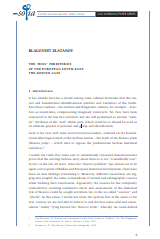
Keywords: Hungarian nation-building;
Preparadigmatic and early paradigmatic ethnographic imagination and practice played a crucial role in mid- and late 19th-century Hungarian nationbuilding. Different versions of national identity competed within the new discipline called ethnography. They used, translated, transformed, and remade the emerging discipline. In order to map these transformations, I will focus both on the ideological transfers and on the internal cleavages to simultaneously see the sources, and the reception of texts and phenomena that are used in the crossings and interactions of this disciplinary formation. At the same time, this train of thought is also a broad history of the early (preparadigmatic and early disciplinary) phases of Hungarian ethnography. As such, it will try to follow the history of the professionalization and „disciplinarization“ of ethnography along several shifts: from the mainly textual interest of Hungarian ethnography of the 1840s-1860s to the „visual turn“ and exhibition of folk objects of the 1870s, and to the complex interaction of the phenomena of tourism and ethnography in the last two decades of the 19th century. In following these shifts, it will attempt to understand and analyze how the emergence of this new discipline coincided with the rise of the nation-building process of modernity, and what were the consequences of their complex and multi-layered relationship.
More...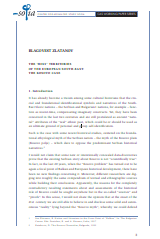
Keywords: Shemseddin Sami Frashëri; Turkish nationalism; Albanian nationalism;
This paper deals with representative writings of an Ottoman intellectual, Shemseddin Sami Frashëri (1850–1904), who has simultaneously been represented in contemporary Turkey and Albania as one of the fathers of Turkish and Albanian nationalisms, respectively. Accordingly, he is known with two different names in these countries: „Sami Frashëri“ in Albania and „Şemseddin (or Şemsettin) Sami“ in Turkey. In order to avoid partisanship in this question, either his full name (as in the title) or the short version „Sami“ will be used in this paper.
More...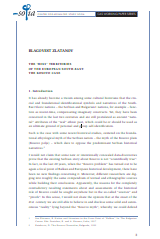
Keywords: Albanian National Movement; Albanian Communist Regime; King Zogu I;Faik bej Konitz;
Faik bej Konitza was an important figure of the Albanian National Movement. During the communist regime in Albania he was labelled a „reactionary,“ and therefore no studies could be undertaken on him. His main sin was to have served as minister in Washington, for King Zog I (1928–1939). With the end of isolationism and fall of the communist regime in 1990, the road for thousands of Albanians to leave the country and for Konitza to come back home, once and forever , was opened. His remnants were brought to Albania in 1995. His simple tomb in the park of the capital Tirana has thus fulfilled his last wish, to be interred in his „fatherland’s soil.“ I present him here as the subject of a case study for three main reasons. Firstly, he was one of the main figures of the second phase of the Albanian National Movement (1878–1912). This allows for some comparative approaches in relation to the „fathers,“ or the first generation of Albanian nationalist intellectuals, one of the most important among them being Shemseddin Sami Frashëri (1850–1904). Secondly, considering the discursive articulation and political instrumentalization of the concepts of folk, people, nation in the late 19th and early 20th centuries, it should be noted that Konitza, more than anyone else among Albanian nationalist intellectuals of his time, stressed the importance of an Albanian literary language in forging an Albanian nation.
More...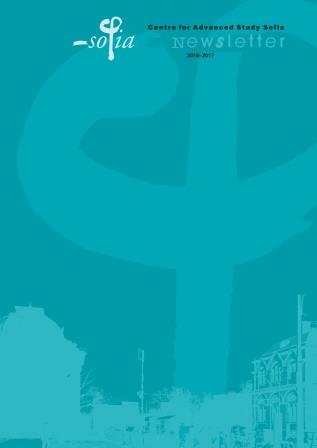
Keywords: Centre for Advanced Study Sofia Newsletter
Articles, pictures and interviews can be reprinted only with the consent of the Centre for Advanced Studies Sofia
More...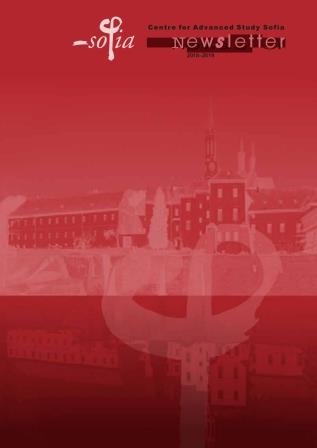
Keywords: Centre for Advanced Study Sofia
Articles, pictures and interviews can be reprinted only with the consent of the Centre for Advanced Study Sofia
More...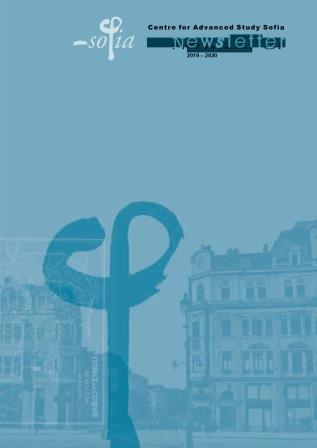
Keywords: Centre for Advanced Study Sofia Newsletter
Articles, pictures and interviews can be reprinted only with the consent of the Centre for Advanced Study Sofia
More...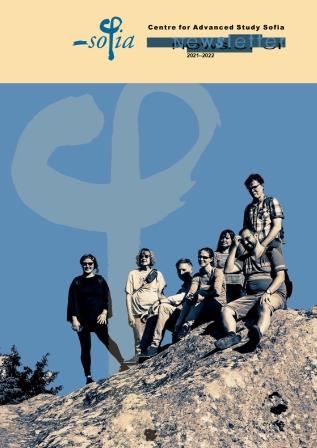
Articles, pictures and interviews can be reprinted only with the consent of the publisher.
More...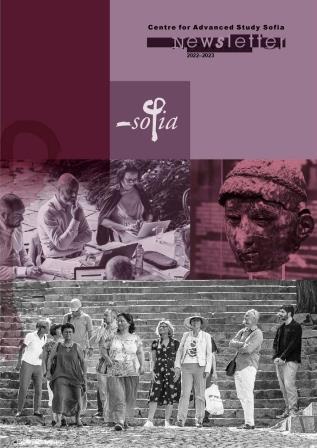
Articles, pictures and interviews can be reprinted only with the consent of the publisher.
More...